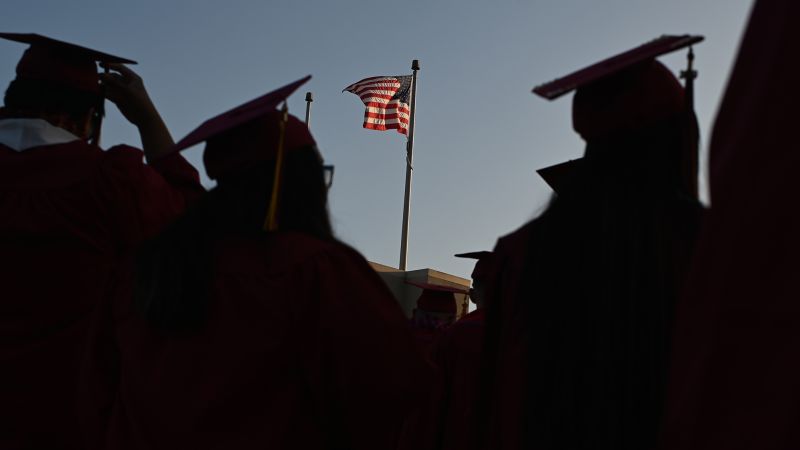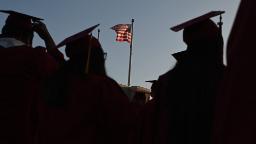

CNN
—
A Wisconsin taxpayers group has asked the Supreme Court to step in on an emergency basis and temporarily block the Biden administration’s student loan forgiveness program from taking effect. The application for student loan forgiveness officially opened Monday.
Student loan cancellation – worth up to $20,000 per eligible borrower – could begin as soon as Sunday, October 23, if the court does not intervene, according to the filing from the Brown County Taxpayers Association.
The request was filed to Justice Amy Coney Barrett, who has jurisdiction over the lower court that ruled on the case. She is likely to refer the matter to the full court.
The Biden administration is facing several legal challenges over the program, but this is the first to reach the Supreme Court.
The taxpayer group’s lawsuit has not gained traction at the lower court level. A trial-level federal judge dismissed the case within two days of it being filed, ruling that the group lacked standing to bring the lawsuit.
In a one-sentence order, the US 7th Circuit Court of Appeals also refused the plaintiff’s emergency request for a pause.
The Brown County Taxpayers Association, which is being represented by the Wisconsin Institute for Law and Liberty, argues that the President does not have the legal authority to implement his student loan forgiveness program.
In the new filing with the Supreme Court, lawyers for the group argued that the implementation of the program would be a “staggering blow” to the US Treasury and taxpayers.
“We are witnessing a gargantuan increase in the national debt accomplished by a complete disregard for limitations on the constitutional spending authority,” they wrote.
The Biden administration argues that Congress gave the secretary of education the power to discharge debt in a 2003 law known as the HEROES Act.
The independent Congressional Budget Office has estimated that Biden’s student loan forgiveness program could cost $400 billion.
Biden’s student loan forgiveness program, first announced in August, aims to deliver debt relief to millions of borrowers before federal student loan payments resume in January after a nearly three-year, pandemic-related pause.
While the application officially opened on Monday, the Biden administration has agreed in court documents to hold off on canceling any debt until October 23. Once processing begins, most qualifying borrowers are expected to receive debt relief within weeks.
Under Biden’s plan, individual borrowers who earned less than $125,000 in either 2020 or 2021 and married couples or heads of households who made less than $250,000 annually in those years will see up to $10,000 of their federal student loan debt forgiven.
If a qualifying borrower also received a federal Pell grant while enrolled in college, the individual is eligible for up to $20,000 of debt forgiveness.
In a separate lawsuit, six GOP-led states have also asked a federal judge to put student loan cancellation on hold until issuing a final ruling on the case. The judge’s order on that request is expected soon – though the losing party is expected to immediately appeal. That would send the case to the 8th Circuit Court of Appeals, where it is likely to face a panel of conservative judges.
The states have argued that the Biden administration does not have the legal authority to grant broad student loan forgiveness.
The states also claim that the policy would hurt them financially, as well as the revenues of a student loan servicer based in Missouri known as MOHELA.
The loan forgiveness policy creates an incentive for borrowers to consolidate Federal Family Education Loans owned by MOHELA into Direct Loans owned by the government, “depriving them (MOHELA) of the ongoing revenue it earns from servicing those loans,” according to the lawsuit.
On the same day the lawsuit was filed, the Department of Education changed its policy so that borrowers whose federal student loans are guaranteed by the government but held by private lenders – including those made by the former Federal Family Education Loan program – were no longer eligible for debt relief.
The move cut out an estimated 700,000 people from the student loan forgiveness program.
This story has been updated with additional information.
